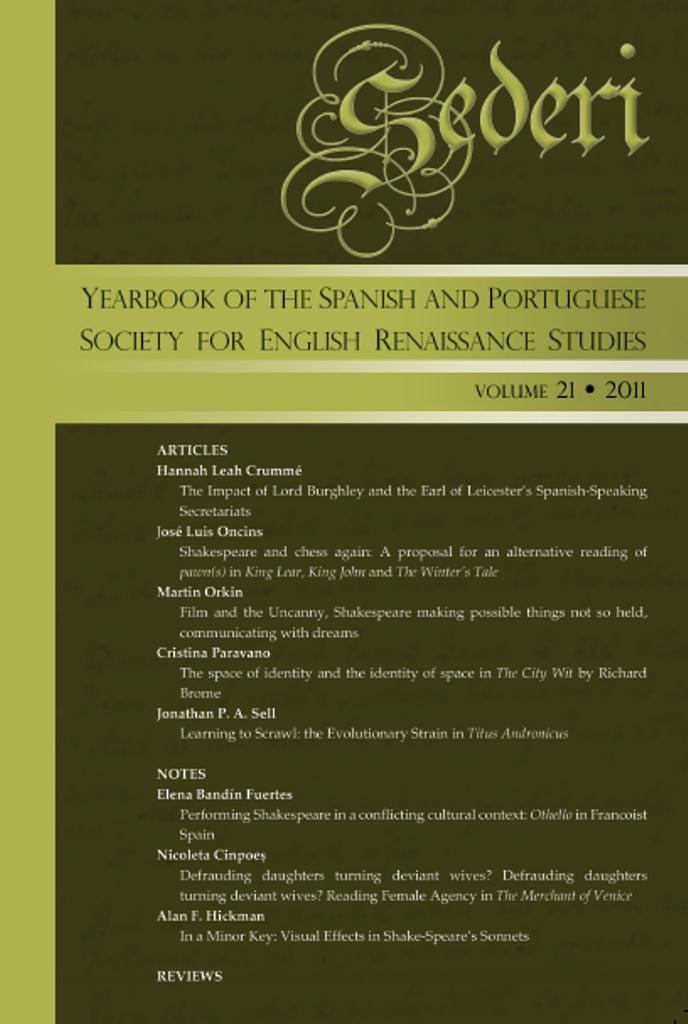Defrauding Daughters Turning Deviant Wives? Reading Female Agency in The Merchant of Venice
Keywords:
The Merchant of Venice, commodity/ commodification, subsidiarity, bonds/binding, marriage code versus friendship code, defrauding, deviancy, agency, conveyancing, (self)exclusionAbstract
Brabantio’s words “Look to her, Moor, if thou hast eyes to see:| She has deceived her father, and may thee” (Othello, 1.3.292–293) warn Othello about the changing nature of female loyalty and women’s potential for deviancy. Closely examining daughters caught in the conflict between anxious fathers and husbands-to-be, this article departs from such paranoid male fantasy and instead sets out to explore female deviancy in its legal and dramatic implications with reference to Shakespeare’s The Merchant of Venice. I will argue that Portia’s and Jessica’s struggle to evade male subsidiarity results in their conscious positioning themselves on the verge of illegality. Besides occasioning productive exploration of marriage, law and justice within what Morss (2007:183) terms “the dynamics of human desire and of social institutions,” I argue that female agency, seen as temporary deviancy and/or self-exclusion, reconfigures the male domain by affording the inclusion of previous outsiders (Antonio, Bassanio and Lorenzo).
Downloads
Downloads
Published
Issue
Section
License
The copyright holder of the published contributions is SEDERI.The hardcopy and an open-access version of the journal will be published simultaneously. The issues will be available online in the SEDERI website (http://www.sederi.org/yearbook/) and other repositories that have signed an agreement with SEDERI.
The authors who publish with this journal agree to the following terms:
a) SEDERI retains copyright of the essay.
b) If the author wishes to republish or rewrite the essay for another journal, or include the essay published in SEDERI in their personal repositories, or in any other way, they should contact the editors to obtain permission to do so. This will entail citing SEDERI as the original source and sending the editors a copy of the new version, or the link to the website, in case of online publishing.
The author(s) hereby warrant(s) that:
a) The essay submitted for publication is an original creation and does not infringe any copyright or property right of another journal, author or publisher.
b) The essay submitted for publication has not been previously published, whole or in part, and is not being considered for publication elsewhere.
c) Written permission has been obtained for any material from other sources included in the essay submitted for publication.




